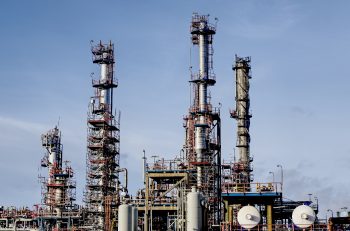CLIMATE: Bridging the Climate Finance Gap: Catalysing Private Capital for Developing and Emerging Economies
By:
Promit Mookherjee – Associate Fellow at the Centre for Economy and Growth in Delhi
10th March 2023
The global fight against climate change is at a critical juncture, and any hope of achieving the 1.5-degree Paris Agreement target now rests on an unprecedented transformation of economies and energy systems away from fossil fuels. In countries of the Global South, climate action continues to suffer from lack of financial flows to green sectors and broken promises of support from the developed world. Indeed, developed nations are yet to deliver on even the minimum annual commitment of US$ 100 billion that they made in 2008. Considering how emerging and developing economies (EMDEs) will require anywhere between US$ 3 trillion to 6 trillion per year by 2050 to meet their climate targets, the existing commitments are far too inadequate—and a reason for the lack of trust between the Global North and the Global South.
Private capital will therefore have to play a bigger role as developing economies seek not only to curb their own greenhouse gas emissions but also cope with the inevitable impacts of climate change. However, international private capital has been largely absent in these geographies. For example, only 14 percent of the total climate finance in Africa so far has come from private capital. In India, more than 85 percent of climate finance in 2020 came from domestic sources, with international private capital accounting for less than 7 percent of the total financial flows.
At the same time, private capital continues to flow freely towards fossil fuel projects, despite the dire warnings from the IPCC on the immediate need to cease further investment in fossil fuels. The top 60 global banks have invested around US$ 742 billion towards fossil fuel projects in 2021 alone, while 80 percent of the investment from private equity firms in energy has been directed toward fossil fuels since 2011.
This situation persists despite the improving economic case for green investments. The cost of producing solar and wind energy have seen rapid declines—as much as 95 percent in the last decade alone. In India, tariffs for wind and solar are already lower than those for conventional coal-based power. Battery technologies for electric vehicles and storage are also becoming increasingly viable, while green hydrogen is taking strides as a so-called ‘fuel for the future’. Already, those investing in green sectors are seeing increasing financial returns.
However, even when private investors raise their stakes in green projects, they prefer to do so in developed economies. ESG investing is a good example of this: between 2018 and 2022, ESG assets increased by 35 percent, making up more than one-third of the total assets under management today. Geographically, these funds continue to be focused more in Europe and North America, with the Asia-Pacific (A-PAC) region accounting for less than 5 percent of all ESG assets, albeit with a higher growth rate. Even within Asia, investments continue to focus on the more developed economies. India, the largest emerging economy in the region, accounts for only around 2 percent of the ESG assets in the A-PAC. The situation is similar for other developing economies in Latin America and Africa where the quantum of green investments is even lower.
The problem is that despite increasing returns and very large markets, private investors still view developing economies as risky investments due to certain perceptions. Some of the commonly cited issues include lack of visibility for shovel-ready projects, poor reporting standards and data constraints, high fossil fuel subsidies, currency risks, and uncertainty regarding future climate policies. This risk aversion leads to a steep cost of capital for green developers in the developing world.
Quite clearly, the present flows of private investment are not sustainable nor equitable, and concerted efforts will now be needed to redirect these flows toward green projects in the developing world where they can have the largest impact. This volume brings together analysts and practitioners from different geographies to examine some of the most relevant instruments that can be used for catalysing private green capital.
The first two essays study carbon pricing as a tool for internalising the costs of carbon into the decision-making process for businesses. Several emerging economies are now looking at developing domestic carbon trading markets, which are seen as an effective tool for channelling future investments into more sustainable pathways while being technology-neutral and allowing businesses to choose the most cost-effective emission reduction options. At the same time, poorly designed carbon markets are ineffective at emission reductions and in the worst case can impede industrial growth. Thus, emerging economies must take lessons from existing carbon markets to design their own models that will work for themselves while also interacting effectively with the international markets. Furthermore, companies on their own must also increasingly focus on internal carbon pricing mechanisms as a means to integrate themselves with the new green economy. This compendium highlights certain ideas for developing carbon trading markets and feasible internal carbon pricing mechanisms for businesses.
The second section of essays deals with the evolving sustainable finance landscape and its implications for the developing world. A number of tools and practices have emerged that intend to shift investor interest toward green investments; green bonds and ESG investing are two of the most prominent examples. However, these tools are often more suited for established markets, making it difficult for EMDEs to scale up such investments. In some cases, the design of these instruments can even lead to investors pulling out of developing economies for perceived greener investments elsewhere. There is also a lack of institutional and regulatory capacity within emerging economies to optimise returns on these investments. The essays in this compendium engage with some of the key challenges to scaling up sustainable investment in the developing world.
The compendium also addresses the role of multilateral institutions. Multilateral and bilateral financial institutions are uniquely placed to crowd in private capital through their investments in green sectors and different blended finance and risk guarantee mechanisms. However, the track record of MDBs and DFIs in catalysing private green capital leaves a lot to be desired. Reforming these institutions to make them fit-for-purpose for climate investments could unlock large flows of global private capital.
Similarly, the G20 grouping is uniquely placed to unlock climate finance flows. For the first time in the grouping’s history, its presidency will be held consecutively by four developing nations: Indonesia in 2022, followed by India, Brazil, and South Africa. This provides a unique moment to push the climate finance needs of the developing world to mainstream G20 agenda and utilise its unique convening powers to effect meaningful changes in the international financial architecture. The opportunities from this unique moment for the G20 are highlighted through insightful essays from authors from Indonesia and India.
This publication therefore aims to cover a wide range of issues and opportunities for harnessing greater flows of private capital for climate action. Given the state of the climate emergency, there can no longer be excuses for not utilising every instrument available to facilitate greater financial flows. While the developed world is responsible for more than 80 percent of historical emissions, going forward, economic growth in the developing world will be the largest driver of future emissions. Private capital, in all its forms, must be redirected to the developing world through all avenues possible.
Learn More /…
Attribution: Promit Mookherjee, Ed., Bridging the Climate Finance Gap: Catalysing Private Capital for Developing and Emerging Economies, March 2023, Observer Research Foundation.
About Promit Mookherjee
Promit Mookherjee is an Associate Fellow at the Centre for Economy and Growth in Delhi. His primary research interests include sustainable mobility, techno-economics of low carbon energy transitions and climate finance. He has worked extensively on technical and policy issues related to low carbon mobility, including electric mobility, public transport, and railways.
Promit holds a Master’s degree in Environmental and Resource Economics and has prior experience in modelling energy systems and non-market valuation of environmental goods. He has also written regularly for various news media on issues related to sustainable mobility.
Learn More /…About ORF – (Observer Research Foundation)
The Beginning
ORF began its journey in 1990 at the juncture of ideation tempered by pragmatism. During the period of India’s transition to a new engagement with the international economic order, several challenges emerged, evoking a need for an independent forum that could critically examine the problems facing the country and help develop coherent policy responses. ORF was thus formed, and brought together, for the first time, leading Indian economists and policymakers to present the agenda for India’s economic reforms.
What We Are Today
Propelled by the process of reforms initiated in the 1990s, ORF, over the past 30 years of its existence, has effectively narrated and participated in India’s story as the country has acquired an unmistakable global footprint. From primarily looking inward and engaging with domestic reforms, to gradually forging global partnerships, ORF today plays a seminal role in building political and policy consensus that enables India to interact with the world.
Learn More /…Our PR Wire Channel Management Team provide direct, immediate, highly cost-effective access to our entire Geopolitical contacts network including our proprietary Userbase of 232k* individually named, profiled & GDPR compliant CSuite industry influencers and policy makers, across the Banking & Finance, Insurance, Manufacturing, Technology, Aviation and Maritime industries as well as NGOs and Government Departments Worldwide.(*Up 41% year on year)









